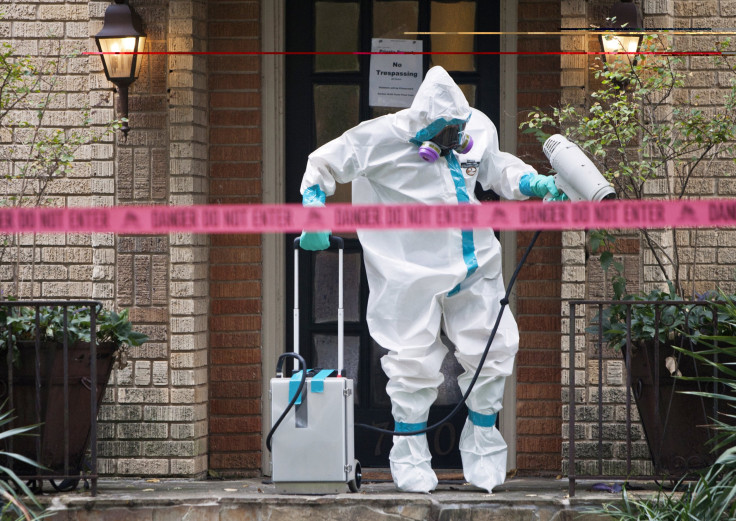New Ebola Guidelines In US To Require Nurses Treating Affected Patients To Cover Their Bodies Fully

American hospitals will be subject to a stricter regimen while treating Ebola patients in the future as the U.S. Centers for Disease Control and Prevention, or CDC, is coming up with new guidelines aimed at containing the virus' outbreak. The move follows criticism that a lack of adequate safety measures led to two nurses being infected at a Dallas hospital.
The new guidelines will require nurses to be fully covered while treating patients with Ebola or those suspected of having the virus. Existing guidelines were developed based on guidance from the World Health Organization, which had earlier allowed workers in West Africa to have portions of their skin exposed, according to Anthony Fauci, director of the National Institute of Allergy and Infectious Diseases, a part of the National Institutes of Health.
“The guidelines did have some exposure of skin,” Fauci said in an interview, according to the Wall Street Journal, adding: “We want to make sure everything is covered.”
“We need to have more than just the four [hospitals] in which you have people who are pre-trained, so that you don’t come in, and then that’s the first time you start thinking about it,” Fauci said, according to the Journal, adding: “It can’t just be four. We may not even need any more, and we hope we don’t.”
The Ebola epidemic, the worst since its discovery in 1976, has so far claimed over 4,500 lives, and more than 8,000 people have been infected, mostly in West Africa.
© Copyright IBTimes 2024. All rights reserved.






















